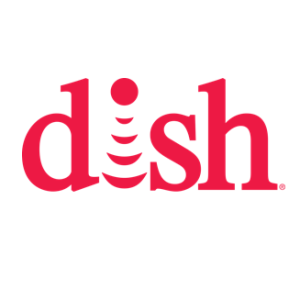UPDATE: The FCC approved the public notice to seek further comment on the program.
Facing mounting criticism regarding a so-called “Designated Entity” program for government auctions of electromagnetic spectrum airwaves, the FCC will meet Friday to request further comment on the program. According to its website, “The Commission will consider a Public Notice requesting additional comment on how to ensure that small businesses, rural telephone companies, and businesses owned by members of minority groups and women have an opportunity to participate in the provision of spectrum-based services, while ensuring that there are adequate safeguards to protect against unjust enrichment to ineligible entities.”
How the FCC will proceed is largely unknown at this point; however, it appears that the actions taken by satellite behemoth DISH Network in the most recently concluded auction that led to a $3.3 billion tax credit is driving much of the discussion. At the heart of the issue is how DISH used shell companies that qualified under the Designated Entity program, perhaps giving it an upper hand in what was largely a successful auction that netted $45 billion in revenue for the federal government.
Rather than bid solely as a corporate entity, DISH poured money into two smaller companies – Northstar Wireless and SNR Wireless – and was able to secure licenses through them. The problem that many critics on all sides of the debate have though, is that DISH has an 85 percent economic stake in these two companies that conveniently qualify for the small business program.
“Northstar Wireless and SNR Wireless made $13.3 billion in gross provisional winning bids, but are seeking to pay only around $10 billion because they filed their applications as designated entities to get the FCC’s 25 percent discount for designated entities and small businesses,” FierceWireless reported.
The FCC is clearly also taking issue with this, beyond Republican Commissioner Ajit Pai who lambasted the results from day one. Despite outbidding most of the field, DISH has not yet received note that the FCC has approved the assignment of the AWS-3 spectrum licenses it won in February. According to recent reports, its competitors, namely AT&T, T-Mobile and Verizon, have received their assignment.
But perhaps most interesting is that this issue continues to unite rather strange bedfellows across the business and ideological spectrum. Compared to other highly-contentious debates, such as net neutrality, this is a break from trends in the telecommunications industry.
To date, pundits such as Steve Forbes, a Republican and Ev Ehrlich, a Democrat, have widely criticized DISH, as have conservative groups such as the Taxpayers Protection Alliance and bedrock progressive organizations like the NAACP and Communications Workers Association. In Congress, Democratic Senator Claire McCaskill and Republican Senator Kelly Ayotte have separately slammed DISH. “Wireless spectrum and federal resources are both far too scarce to allow multibillion-dollar corporations to abuse taxpayers this way,” McCaskill, who threatened legislation, wrote in a letter to the FCC.
But the companies theoretically hurt by DISH’s actions have also gone public. In late March, a collection of small, largely rural telecommunication providers wrote to the FCC asking for the issue to be fixed immediately. Missouri-based Grand River Communications decried the actions of DISH, writing, “GRC explained that it is attempting to find innovative ways to build out its wireless network to its customers in rural Missouri. GRC knows that an opportunity to obtain spectrum below sub-1 GHz is essential to build out a more efficient network in rural areas where the AWS-3 spectrum is not as efficient. Moreover, in rural areas like Princeton, Missouri, schools depend on the local carriers to provide broadband to the school systems. Because providers like GRC continue to be outbid by large carriers disguised as ‘very small businesses,’ GRC and other rural carriers are losing out on spectrum that would provide a complimentary service to an already established landline system.”
InsideSources reached out for comment from Dee Herman, counsel for the telcos, and will update with a response when it is received.
Small companies should clearly seek to reform the program to prevent future abuses, but the more pressing issue to many is whether or not the FCC will grant DISH the $3.3 billion discount it is set to recoup. “That needs to happen immediately, full stop,” said Ev Ehlrich in an op-ed. Tomorrow may help bring clarity to the current situation. We’ll be tracking.

